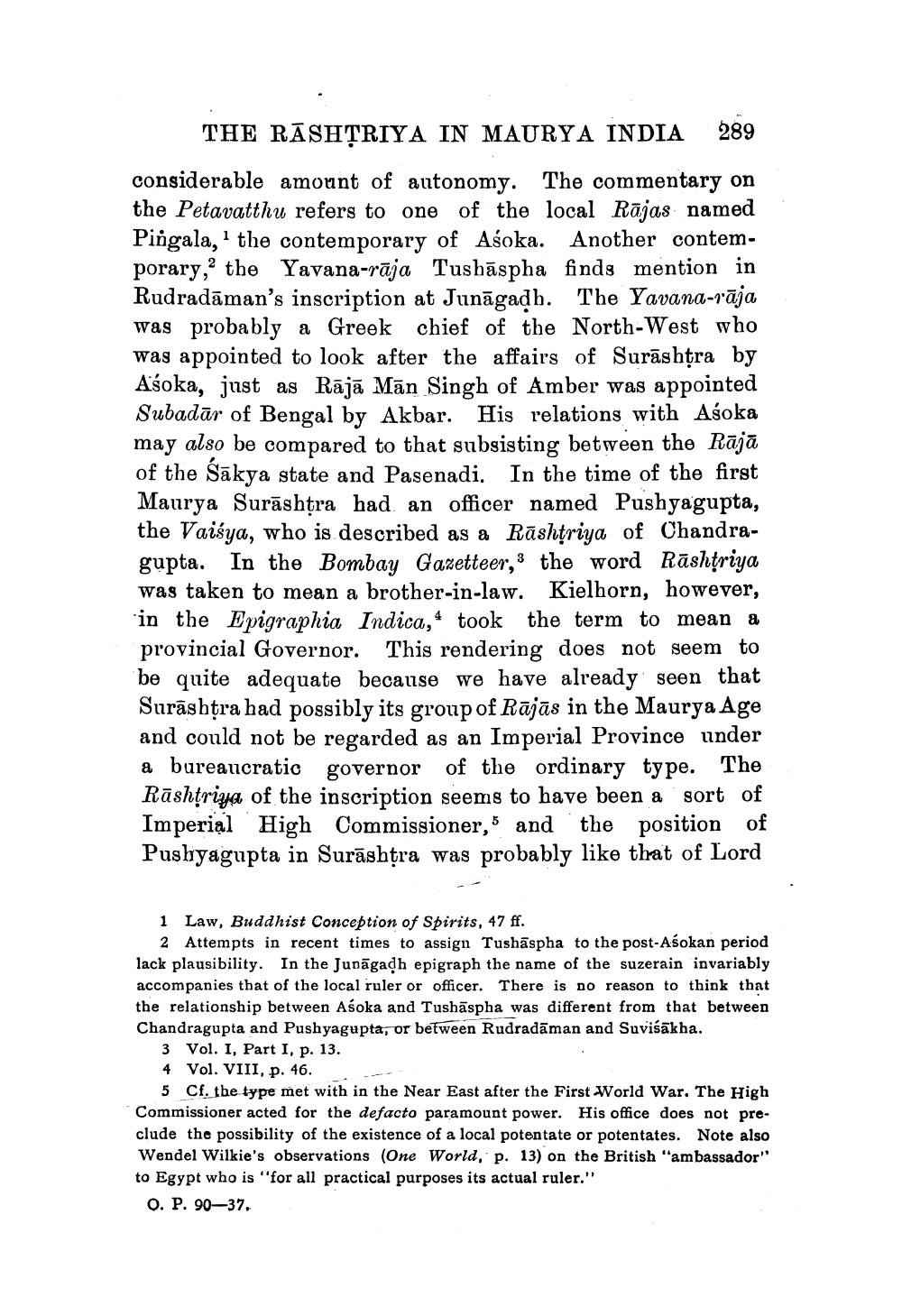________________
THE RĀSHTRIYA IN MAURYA INDIA 289 considerable amount of autonomy. The commentary on the Petavatthu refers to one of the local Rājas named Pingala, the contemporary of Asoka. Another contemporary, the Yavana-rāja Tushāspha finds mention in Rudradāman's inscription at Junāgadh. The Yavana-vāja was probably a Greek chief of the North-West who was appointed to look after the affairs of Surāshtra by Asoka, just as Rājā Mān Singh of Amber was appointed Subadār of Bengal by Akbar. His relations with Aśoka may also be compared to that subsisting between the Rājā of the sākya state and Pasenadi. In the time of the first Maurya Surāshtra had an officer named Pushyagupta, the Vaisya, who is described as a Rāshtriya of Chandragupta. In the Bombay Gazetteer, 3 the word Rāshtriya was taken to mean a brother-in-law. Kielhorn, however, in the Epigraphia Indica, 4 took the term to mean a provincial Governor. This rendering does not seem to be quite adequate because we have already seen that Surāshtra had possibly its group of Rājās in the Maurya Age and could not be regarded as an Imperial Province under a bureaucratic governor of the ordinary type. The Rāshtriya of the inscription seems to have been a sort of Imperial High Commissioner, 5 and the position of Pushyagupta in Surāshtra was probably like that of Lord
1 Law, Buddhist Conception of Spirits, 47 ff.
2 Attempts in recent times to assign Tushāspha to the post-Asokan period lack plausibility. In the Jupāgadh epigraph the name of the suzerain invariably accompanies that of the local ruler or officer. There is no reason to think that the relationship between Asoka and Tushāspha was different from that between Chandragupta and Pushyagupta, or between Rudradāman and Suviśākha.
3 Vol. I, Part I, p. 13. 4 Vol. VIII, p. 46.
5 Cf. the type met with in the Near East after the First World War. The High Commissioner acted for the defacto paramount power. His office does not preclude the possibility of the existence of a local potentate or potentates. Note also Wendel Wilkie's observations (One World, p. 13) on the British "ambassador" to Egypt who is "for all practical purposes its actual ruler."
0. P. 90—37.




